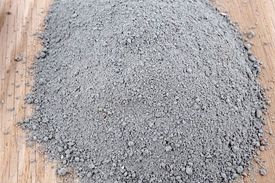
- General Product Name : Ordinary Portland Cement
- Product Category : Cement
- Compliance Name : BIS / ISI Certification
- Indian Standard : IS 269: 2015
Ordinary Portland Cement (OPC) is the most commonly used type of cement in the construction industry and serves as the foundational material for various building applications. OPC is made by grinding clinker, a mixture of calcareous and argillaceous materials, along with gypsum, which acts as a setting regulator. It is known for its versatility and strength, making it suitable for a wide range of construction projects, including residential, commercial, and infrastructure developments. OPC is available in different grades, with each grade designed to meet specific construction requirements. It plays a pivotal role in the development of concrete, serving as the binding agent that holds together aggregates like sand and gravel. While OPC is widely used, it is worth noting that alternative cement types, such as blended cements and specialty cements, are gaining popularity due to their reduced environmental impact and specific performance characteristics. However, OPC remains the cornerstone of the global cement industry, valued for its reliability and adaptability in construction projects worldwide.
IS 269: 2015, for Ordinary Portland Cement (OPC), is an important standard in the construction and building materials industry. IS 269: 2015 sets specifications and requirements for OPC, ensuring that the cement produced complies with established quality standards. Adherence to this standard guarantees that OPC is of a consistent and dependable quality, contributing to the structural integrity of buildings and infrastructure. The use of substandard or non-compliant cement can compromise the safety and longevity of structures. IS 269: 2015 helps ensure that OPC is safe to use and reliable in construction. Compliance with this standard is essential for foreign cement manufacturers to export their products in India and maintain legal compliance.
Note: Foreign manufacturers of Ordinary Portland Cement are required to obtain the mandatory BIS/ISI Certification to export their products to the Indian market.
BIS/ISI Certification is an essential requirement for foreign manufacturers intending to export Ordinary Portland Cement to India. This certification, mandated by the Indian government, is critically important to ensure that the cement meets the country's specific technical and safety standards, guaranteeing its quality, performance, and compliance with local regulations. Without BIS/ISI Certification, foreign manufacturers are legally restricted from marketing or distributing their cement in the Indian market. The certification process ensures that the imported cement adheres to stringent quality benchmarks, chemical composition requirements, physical properties, and safety standards, contributing to the reliability and structural integrity of construction projects in India.
The BIS/ISI Certification is a hallmark of product quality and safety in India, administered by the Bureau of Indian Standards (BIS). Established in 1987, BIS is a statutory body under the Bureau of Indian Standards Act 1986, responsible for setting, maintaining, and ensuring compliance with standards across various sectors. It upholds the legacy of the Indian Standards Institution (ISI), founded in 1947 and introduced the ISI mark as an emblem of quality. BIS continues this legacy by formulating standards and granting BIS/ISI Certification to products that meet the stringent quality and safety criteria defined by the organization. The Bureau of Indian Standards has been operating the Foreign Manufacturers Certification Scheme (FMCS) since 2000, as per Scheme-I of Schedule-II, BIS Act, 2016, and (Conformity Assessment) Regulations, 2018, specifically designed for foreign manufacturers. This scheme empowers international applicants and manufacturers to utilize the ISI Mark for exporting their products in India. The exclusive authority responsible for awarding the BIS Certificate for imports to foreign manufacturers is the Foreign Manufacturers Certification Department (FMCD). The primary objective behind BIS providing Manufacturing Certificates to foreign manufacturers is to ensure that the public in India has access to high-quality, safe, reliable, and risk-free products.
Complete your BIS/ISI Certification process by following these steps:
Step 1: Application Submission
- Gather all required documents
- Submit documents and the Application Fee
- Receive the Application Number
- Scrutinize the Application within the specified time frame
Step 2: Query Raised (If any)
- Receive communication about any missing documents or non-compliance
- Respond within the given period
For more detailed information, please click here.
Here is the list of documents required for foreign manufacturers for BIS/ISI Certification in India:
● Main Application Form V - (View / Download)
(Primary factory and product category information)
● ISI Application Fee - (View / Download)
(Copy of Remittance / Payment Advice)
● In-House Laboratory Test Report
(Indicating product compliance with the relevant Indian Standard, conducted within one month)
For more detailed information, please click here.
Export Approval, powered by Brand Liaison, is a single platform solution for various product certifications and approvals in India. We are one of the leading compliance consultant that provide essential Indian certification services to manufacturers to export their products to India. Our services include:
- Comprehensive support for paperwork, testing, and guidance.
- Sample development meeting standards for complete conformity in testing labs.
- Detailed application preparation and timely query responses.
- Free license maintenance for 2 years.
Download Brochure
Process & Guidelines